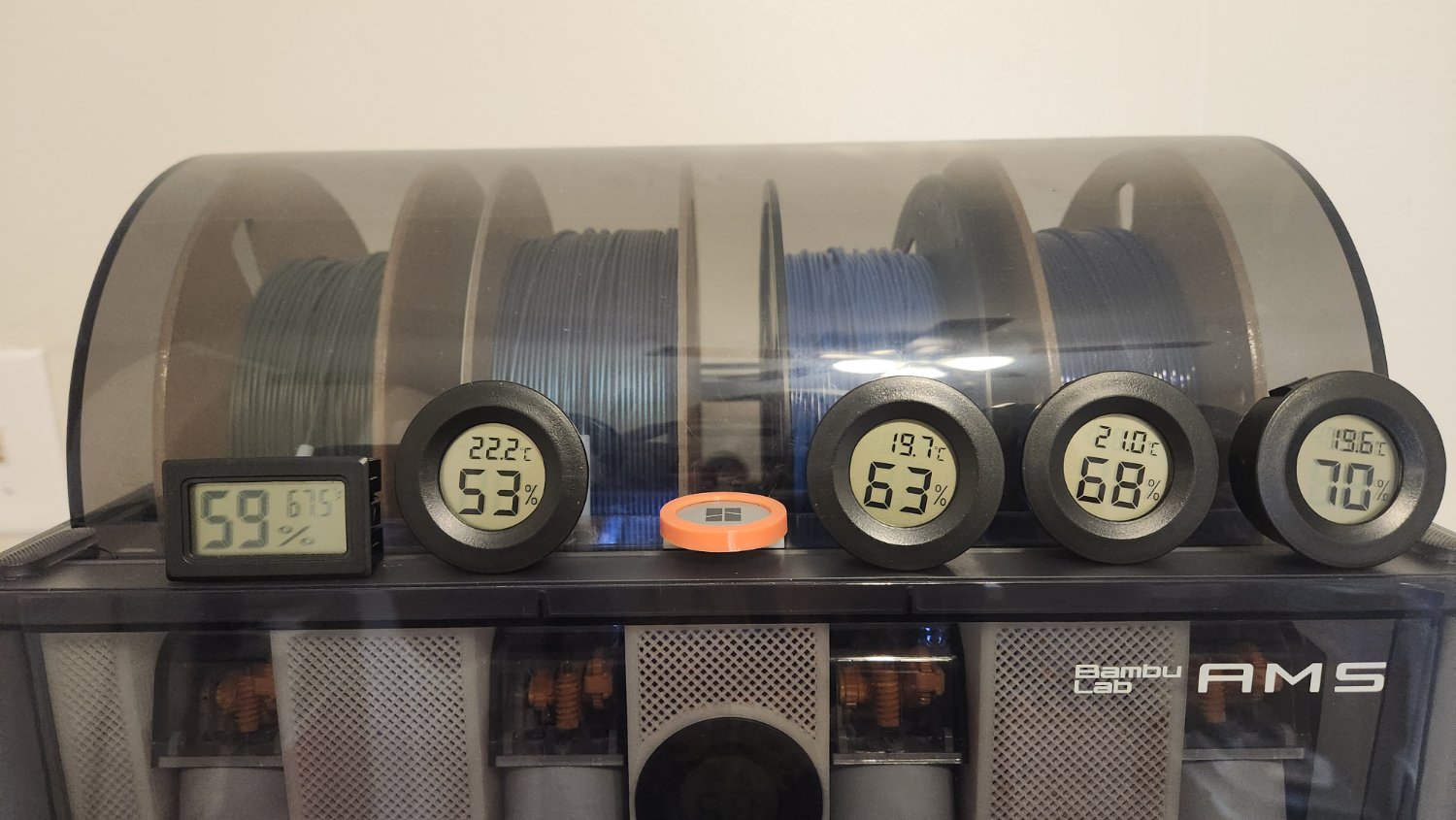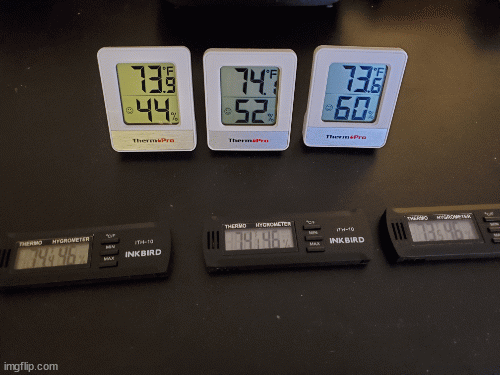I would not be at all surprised to learn that both the commodity round and rectangular units use the exact same components inside. These surely must be made from jellybean off the shelf parts, and at similar price points to each other neither could possibly be assembled with much care or attention to detail.
I have a six pack of the rectangular ones from Jeff Bezos' Knockoff Whitebox Emporium. Even all sealed in the same container with each other, they all disagree by a spread of about 15%. I have no idea which of the six, if any, are actually producing an accurate number.

 After this thread the other day I bought some Inkbird's on sale from Amazon to test them out, have had some ThermoPro TP39 around (and outside) of the house, and one of the Inkbirds was about 5% above on a salt test in a bag, out of the bag, they are all, seemingly reading LOW. Little sick of this, so I bought a Protmex HT607 to test out to see if my feeling is right, that the only one of the hygrometers in the photo that's near correct (3%+/-) is the center ThermoPro. If my feeling is right, I'm going to return all the Inkbirds, and give ThermoPro some shit, make a warranty claim, where I'm sure they'll send me 3 more junk hygormeters. I'm not prepared to spend $800 on a scientific hygrometer that can only do push button spot readings, can continue to be amazed that the market hasn't produced an ADJUSTABLE always on moisture/humidity monitor. It's pretty maddening.
After this thread the other day I bought some Inkbird's on sale from Amazon to test them out, have had some ThermoPro TP39 around (and outside) of the house, and one of the Inkbirds was about 5% above on a salt test in a bag, out of the bag, they are all, seemingly reading LOW. Little sick of this, so I bought a Protmex HT607 to test out to see if my feeling is right, that the only one of the hygrometers in the photo that's near correct (3%+/-) is the center ThermoPro. If my feeling is right, I'm going to return all the Inkbirds, and give ThermoPro some shit, make a warranty claim, where I'm sure they'll send me 3 more junk hygormeters. I'm not prepared to spend $800 on a scientific hygrometer that can only do push button spot readings, can continue to be amazed that the market hasn't produced an ADJUSTABLE always on moisture/humidity monitor. It's pretty maddening.